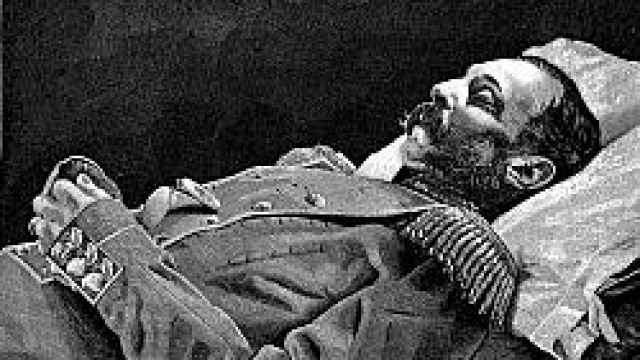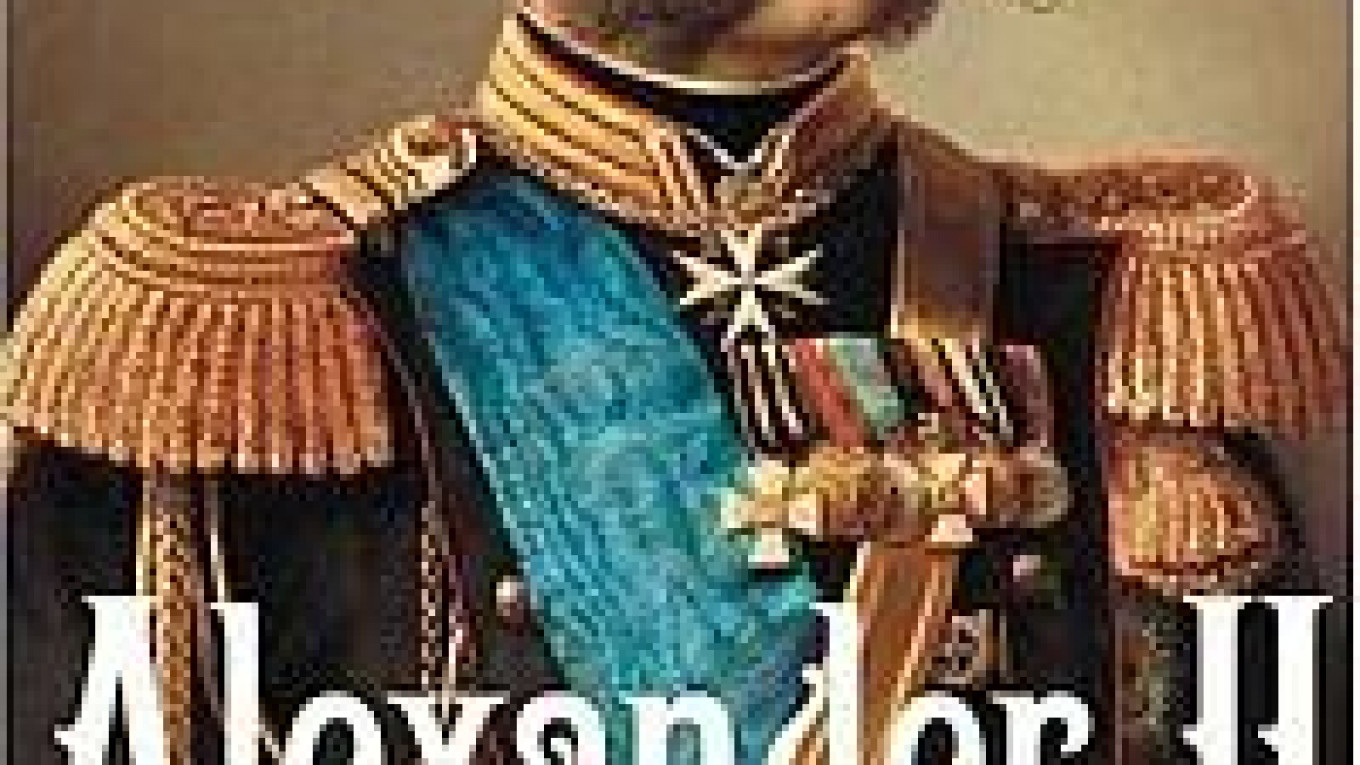Such success might well arouse envy in other historians, a possibility Radzinsky indirectly acknowledges while discussing the historian Nikolai Karamzin in "Alexander II: The Last Great Tsar." "Karamzin was a brilliant writer," Radzinsky writes, "who betrayed his muse of fiction ... and became a historian." Because Karamzin's work was extremely popular, it became "a source of inspiration for future Russian writers, and naturally an object of ruthless criticism for professional historians." Being of the latter ilk myself, I'll try to avoid that deadly sin of envy and stay as objective as possible.
To begin with, Radzinsky, as translated by Antonina W. Bouis, has written a very readable work. His dramatic gift makes him among the most accessible of historical biographers, and he has again picked a subject worthy of his attention -- the tsar who presided over the Great Reforms that abolished serfdom, overhauled the judicial system, established the zemstvo system of elected district assemblies and modernized the Army; won the reputation of "a royal Don Juan"; and was murdered, after numerous previous attempts, by the People's Will terrorist group in 1881. Almost a quarter of the book is devoted to historical background and to Alexander as tsarevich, and even more space is allotted to the last three years of his life and to the terrorists who pursued him. Throughout the biography, readers are treated to colorful and accurate depictions of characters and settings.
Yet Radzinsky's dramatic gift has a downside. Loving drama, he seeks out the sensational and is prone to seeing conspiracies where the evidence for them is at best slim. "There was an Iago in the Winter Palace," he writes, spinning a theory about how Minister of the Court Alexander Adlerberg and other reactionaries, including high-ranking officials of the security police, deliberately allowed the People's Will to plot against, and eventually kill, the tsar. "The idea of making the People's Will concentrate on killing the tsar would have suited them," he writes. "Was that why the police were so useless and why the terrorists lived so freely?" Radzinsky leaves little doubt as to his own opinion. Other historians, however, generally attribute the police's failures to disorganization and inefficiency.
Although the title of the book might suggest differently, the ruler Radzinsky depicts does not generally come across as "great." The author tells us that one of the tsar's chief character traits was vacillation; Alexander was "a two-faced Janus, one head looking forward while the other looked back longingly." This assessment seems accurate in view of Alexander's effort to modernize Russia while maintaining a backward-looking autocracy. I would only add that the two-faced Janus trait was to some extent also characteristic of Alexander II's successors, Alexander III and Nicholas II, who attempted the same difficult feat. Their tragedy and that of Russia was that modernization chafed against their traditionalism, sparking numerous tensions and conflicts.
 For MT Terror cut its teeth in 19th-century Russia, with Alexander II as its most famous victim. | |
Regarding Alexander's final year, Radzinsky believes that the tsar's support for Minister of the Interior Mikhail Loris-Melikov's reforms indicates a renewed strength and forcefulness. He maintains, but does not prove, that Alexander had decided to limit autocracy. Yet the Loris-Melikov plan, which the tsar backed shortly before his death, merely provided for the creation of several commissions that would make legislative recommendations in areas of finance and administration to the tsar's advisory State Council. True, some delegates of the commissions would be elected, as would others on the State Council, but creating advisory groups does not limit autocracy. Decades ago, the historian Pyotr Zayonchkovsky, who is not listed in Radzinsky's bibliography, noted that "Loris-Melikov's project did not infringe on the principles of autocracy," but that it could have marked the start of such a process if certain subsequent steps had been taken. A big "if" indeed. Nevertheless, Radzinsky's point about Alexander being "great once again" is worthy of consideration.
As in his previous works, Radzinsky makes good use of archival materials and other primary sources such as diaries and reminiscences. Yet the present biography reveals less new information about its subject than did the author's books on Rasputin, Nicholas II and Stalin. Unlike his other translated works, no English-language (or non-Russian) sources are listed in the bibliography. Books such as Richard Wortman's two-volume "Scenarios of Power: Myth and Ceremony in Russian Monarchy," various Western accounts of Russian terrorists, and Alexandre Tarsaidze's "Katia: Wife Before God" are all valuable resources. Tarsaidze's book includes many of the tsar's letters to his mistress. If Radzinsky is aware of the particular letters contained in Tarsaidze's work, it is not evident in his book.
Although "Alexander II" is generally accurate, there are some mistakes. For example, Fyodor Dostoevsky's first wife, Maria Isayeva, was not previously "wife of the warden" of the prison camp where the writer labored for four years. In 1849, the rebel Mikhail Bakunin was sentenced to death by the Saxon government, not that of Prussia, and he did not take "part in the Polish uprising against Nicholas I," though he did attempt to help the Poles in 1863. Although Radzinsky sometimes tells us where he got his information, he often does not (there are no footnotes or endnotes), making it difficult to assess its reliability.
Despite these caveats, there is no denying that Radzinsky has once again written a biography that will significantly increase awareness of the subject and stimulate debate. Anyone who can get an audience to listen "for over three hours ... in rapt silence to a tale of the history of their Fatherland" deserves the gratitude of historians everywhere. History is much more exciting than our dull prose often renders it, and Radzinsky reminds us that people will read and listen if we make the past come alive.
Walter G. Moss teaches history at Eastern Michigan University and is the author of "A History of Russia" and "Russia in the Age of Alexander II, Tolstoy and Dostoyevsky."
A Message from The Moscow Times:
Dear readers,
We are facing unprecedented challenges. Russia's Prosecutor General's Office has designated The Moscow Times as an "undesirable" organization, criminalizing our work and putting our staff at risk of prosecution. This follows our earlier unjust labeling as a "foreign agent."
These actions are direct attempts to silence independent journalism in Russia. The authorities claim our work "discredits the decisions of the Russian leadership." We see things differently: we strive to provide accurate, unbiased reporting on Russia.
We, the journalists of The Moscow Times, refuse to be silenced. But to continue our work, we need your help.
Your support, no matter how small, makes a world of difference. If you can, please support us monthly starting from just $2. It's quick to set up, and every contribution makes a significant impact.
By supporting The Moscow Times, you're defending open, independent journalism in the face of repression. Thank you for standing with us.
Remind me later.


